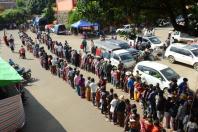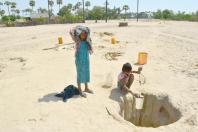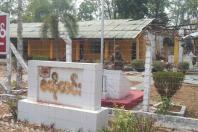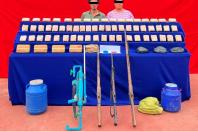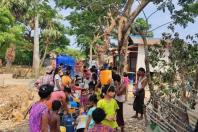VIENTIANE (Vientiane Times/ANN) - The government together with the United Nations is working with other countries to prevent human trafficking, with Laos making a serious effort to curb the practice.
This week the Ministry of Information, Culture and Tourism is organising a seminar in the south of Laos for over 55 government authorities and representatives of privately-owned tourism business in Saravan province.
The seminar aims to strengthen cooperation and participation in the prevention of human trafficking, and takes place from August 1-3.
Opening the meeting yesterday, Deputy Minister of Information, Culture and Tourism, Mr Savankhone Razmountry, who is the ministry’s supervisor of human trafficking prevention, said “Our Party and state, as well as other sectors, consider the prevention of human trafficking to be an important task. We also support prevention efforts in countries whose provinces face this problem, especially those located near borders.
He added that the main reason that human trafficking continues is because poor families are desperate for money and there is a growing development gap between rural areas and towns.
In addition, economic circumstances, a low level of education, lack of job skills, and family problems are reasons why young people struggle to make their way in the world. This puts them at risk of falling prey to traffickers.
Young men and women want to earn money to improve their circumstances and to help their families. Some of those aged under 18 are lied to by agents who work illegally to offer them work in other countries, Mr Savankhone said.
Other people find work in other countries voluntarily, hoping to gain useful experience and enjoy a better way of life.
Mr Savankhone said some young people were forced to provide sexual services in entertainment venues in cities, while others were tricked into forced labour.
In light of this, it was important to inform workers about the risks they may face and the situations they may encounter before they travel to or take up work in other countries. They should also seek out information and make sure they fully understand the situations that may befall them so they can help themselves and are able to protect themselves.
Mr Savankhone said “Providing information is a very important factor in creating understanding among families, local communities, society, and ethnic people living in remote areas.”
The seminar was supported by the Secretariat to the National Committee on Anti-Trafficking in Persons.

